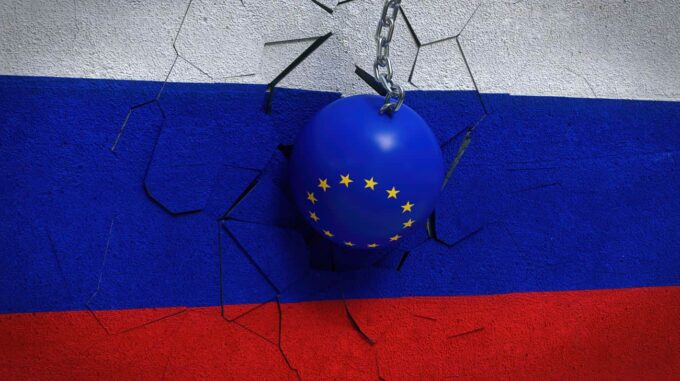The EU Prepares for the Worst-Case Scenario: “Plan B” Confirmed to Preserve Sanctions Against Russia in Case of Veto by Hungary

The European Union is actively working on developing additional response mechanisms to potential hypothetical challenges in sanctions policy regarding Russia. According to high-ranking sources, a so-called "Plan B" has already been devised in Brussels, aimed at ensuring the continuation of current restrictive measures if Hungary blocks their further extension within the EU. EU Chief diplomat Kaja Kallas openly stated in an interview with the French official publication Financial Times that active discussions are underway in several European capitals about possible scenarios in case of a "turnaround" in the United States' attitude toward Ukraine. She mentioned that the Trump administration, which might temporarily suspend its "peace efforts" regarding Ukraine, could potentially reset relations with Moscow, thereby casting doubt on the EU's willingness to continue supporting Ukraine. Kallas noted that policymakers in a few capitals are already debating whether to proceed within the framework of the current strategy or to move toward more radical actions. She emphasized: “It is clear that discussions are ongoing to determine whether we need to support Ukraine at all if America refuses to continue assistance.” At the same time, the diplomat warned that many hope Europe can avoid such a scenario, but she cautioned: “Unfortunately, this is an illusory hope, as Russia, which currently invests over 9% of its GDP in military needs, will seek to seize any opportunity to regain its positions and escalate its aggression.” Special attention within the EU is given to the possibility of maintaining the sanctions regime regardless of Hungary’s actions. As Kallas explained, Brussels has already formulated a "Plan B" primarily based on neutralizing the so-called Hungarian veto — one of the possible steps being the adoption of unilateral sanctions decisions at the level of individual member states. An example cited is Belgium utilizing its legislative framework to decide on freezing Russian assets. Recent reports indicate that Brussels is concerned about Hungary’s continuous blockade of key decisions and is considering options to limit its voting rights in EU institutions. Furthermore, diplomatic circles highlight that the current political struggle around sanctions is not only about signaling a lack of unity but also about the need to develop a strategy capable of countering emerging challenges. Diplomats from across Europe are actively negotiating with Washington and international partners to find mechanisms to preserve the sanctions regime, even amid internal EU disagreements. It is worth mentioning that earlier media reports suggested the possibility of adopting sanctions at the level of individual member states. For instance, it was reported that Belgium might take a tailored decision based on its legislation and national acts. One of the potential steps is issuing a royal decree to freeze Russian assets amounting to up to €190 billion, which could circumvent the need for bloc-wide approval and avoid EU-level blockage. At the same time, sources indicate that the situation with Hungary is causing growing discontent within the European community. According to reports, Brussels is increasingly considering the possibility of stripping Hungary of its voting rights in the European Council if Viktor Orbán’s government continues its opposition and blocks further decision-making in security and economic matters. In conclusion, the European Union is preparing for the worst-case scenarios amid internal divisions regarding sanctions policy, where the ability to act swiftly and decisively to maintain a unified stance in support of Ukraine and counter Russia’s aggression is crucial. Political and diplomatic institutions are actively working on developing legal frameworks and international coalitions so that, if necessary, any available mechanisms can be employed to continue pressuring the Russian regime, regardless of internal disagreements within the EU.

